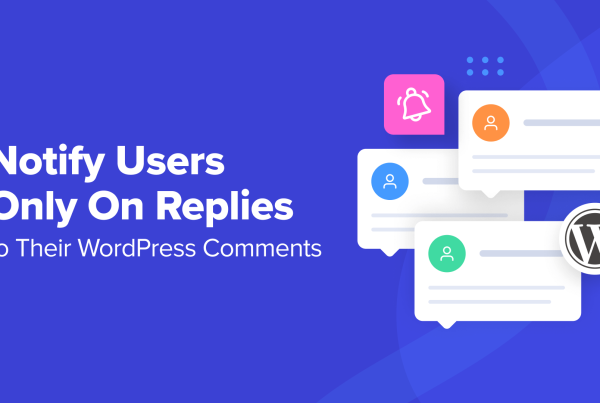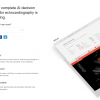Howdy WordPress fans, we’re checking in with the last batch of WordPress news for the year 2019 edition of The WordPress Update.
If you’re not already familiar with The WordPress Update, it’s our monthly WordPress news roundup where we share everything that’s happening in the WordPress community, as well as our thoughts on the latest stories. Then, we post it here on the blog and send it out to our newsletter subscribers.
If you want to stay on top of the latest WordPress news and make sure you get all the future versions of The WordPress Update, the best thing to do is to sign up for the newsletter.
We hope you enjoyed whatever holidays it is you celebrate and are ready for a brand new year of fun with WordPress.
Perhaps in part because of the holidays, December was a relatively quiet month in the WordPress space.
Still, we did get a couple of rapid-fire minor WordPress updates, and there are two interesting posts digging into the economics of WordPress – including the state of the WordPress economy and how WordPress developers charge for plugin updates.
Keep reading for a look at everything that happened in the world of WordPress for December 2019…
Two minor WordPress releases in December
In last month’s edition of The WordPress Update, we detailed the latest major WordPress release – WordPress 5.3 “Kirk”.
In December, we got two minor releases to build on that – WordPress 5.3.1 and WordPress 5.3.2
If you’re not familiar, “minor” releases are smaller affairs that fix potential security issues and bugs and introduce other small improvements. Generally, you should apply minor updates as soon as possible as they can affect the security of your site and are unlikely to cause compatibility issues like a major release might.
Things kicked off with WordPress 5.3.1 on December 13th, which was a security and maintenance release.
First off, it fixes four potential security issues, so you’ll definitely want to apply this update ASAP if you haven’t already.
Then, it also introduced a number of maintenance tweaks to fix some bugs and further improve the WordPress experience. For example, it fixed some issues with the admin dashboard and how WordPress handles dates and times.
Less than a week after releasing WordPress 5.3.1, the core team released another minor WordPress update on December 18th.
WordPress 5.3.2 doesn’t fix any security issues, but it does further adjust some of the maintenance tweaks in WordPress 5.3.1, including some more changes to how WordPress handles dates/times.
If you want to learn more, WP Tavern has detailed posts on both WordPress 5.3.1 and WordPress 5.3.2.
iThemes rounds up WordPress vulnerabilities in December
Every month, the folks at iThemes round up newly-discovered security vulnerabilities in the WordPress core, plugins, and themes.
These posts are always worth a read as they include some popular plugins and themes. Most of the developers have since patched the issues, but you’ll need to make sure you’re using the latest version if you see one of your extensions on the list.
You can check out the full roundup for December here.
The state of the WordPress economy
If you make your living with WordPress, Vlad Olaru put together an interesting post on the state of the WordPress economy in 2019 and beyond.
Vlad is the co-founder of Pixelgrade, a popular theme shop that pulls in about $35,000 per month in revenue, so he knows a thing or two about the WordPress space. I know this because of Pixelgrade’s super in-depth transparency reports, which are also great reads. The Pixelgrade team just published their latest transparency report here.
Overall, Vlad sees big changes to the WordPress economy/ecosystem, so it’s definitely worth a read if you’re interested in WordPress as a business.
Gutenberg 7.1 adds new features to the block editor
Since WordPress 5.0, the block editor has been a part of the WordPress core. However, the plugin version of the Gutenberg block editor still exists and developers use it as a kind of testing ground for new features before merging those features into the WordPress core.
This month, in Gutenberg 7.1, the block editor got some interesting new features:
- Drag-and-drop featured images – You can now drag an image from your computer into the featured image box (just like you can already do in the body of the editor).
- Improved multi-block selection – It’s easier to select multiple blocks at the same time.
- Captions for table blocks – Self-explanatory!
Gutenberg 7.1 also added an experimental index.html block template, which will eventually pave the way for moving the block editor into full-site editing. That’s still a ways off, though.
You can learn more about the new features in this post.
Yoast causes a stir on Black Friday (and what is acceptable advertising?)
If you use the popular Yoast SEO plugin on your WordPress site, you might’ve noticed a new addition to your WordPress dashboard on Black Friday:
A large animated Yoast SEO banner advertising Yoast’s Black Friday sale. Because of its animated nature and size, the ad was quite distracting. Additionally, the animation made it tough to close without clicking on the ad itself. Not to mention, people who run client sites had to explain that there hadn’t been a security breach, because the ad displayed to all users, not just admins.
Put that together, and you got a lot of frustrated users (myself included).
Long story short, people were mad and Yoast apologized (eventually).
But the whole debacle brought up an interesting, and broader question:
What is acceptable advertising for WordPress plugins? Should plugins keep their ads inside their own settings areas or is it acceptable for a plugin to advertise across the entire WordPress dashboard?
Personally, I think that ads should be limited to just the plugin’s settings area.
I don’t buy the argument that developers are giving away a free plugin and thus it’s greedy to criticize them for ads. Most developers aren’t offering their free plugin as an act of charity – it’s purely a marketing tool.
So – keep the ads in your own space, developers!
If you want to check out the discussion, you can browse the Twitter thread I linked above or check out the WP Tavern post, which had 59 comments last time I checked.
Should WordPress developers use recurring or one-time payments?
This last one isn’t exactly WordPress news, but it is an interesting discussion question:
When you purchase a WordPress plugin or theme, how much does the difference between one-time and recurring payments factor into your decision? Additionally, do you think developers should adopt one specific strategy over the other?
Obviously, we all prefer spending less money whenever possible. But the danger with one-time payments is that there’s not as much of an incentive for developers to continue improving and maintaining the product once they receive your one-time payment.
So if it’s an extension that you really value, you might actually prefer a developer to adopt recurring billing so that you continue to see improvements going forward.
Jeff Starr originally posed this question on his website, Digging Into WordPress. Then, WP Tavern saw the post and also created a follow-up post. You can find good discussions in the comments sections of both posts.
Personally, I sit somewhere in the middle. I think recurring payments are definitely a valid strategy, but only for developers who really put in effort to improve the product. For example, the Elementor team is constantly pushing out new features like the Theme Builder and Popup Builder, so you definitely feel like you’re getting your money’s worth when you renew.
On the other hand, if a developer just sits on the product and only releases minor maintenance fixes, there’s not much of an incentive to pay the recurring fee because you’re not getting anything new for your money.
And that wraps up all of the most important WordPress news and articles from December 2019.
Make sure to subscribe to the newsletter by using the box below. And also check back next month for all the exciting news that’s bound to drop in January and the rest of the new year.













